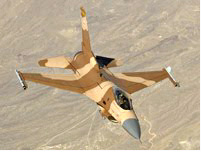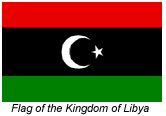...Best of Sicily presents... Best of Sicily Magazine. ... Dedicated to Sicilian art, culture, history, people, places and all things Sicilian. |
by Luigi Mendola | ||
Magazine Index Best of Sicily Arts & Culture Fashion Food & Wine History & Society About Us Travel Faqs Contact Map of Sicily |
The North African nation nearest Sicily is not Libya but Tunisia, historical springboard for invasions by Carthaginians, Arabs and even a few Vandals and Goths. Indeed, since the Libyan revolts began in March, most of the refugees arriving at Lampedusa have been Tunisians representing themselves as Libyans - a matter addressed recently by the governments of Tunisia and Italy. Italy's relationship with Libya has been a complex one, to say the least, and a few years ago the current Italian government signed a series of treaties and agreements which seemed to build more than merely commercial bridges. A not-so-subtle nuance of the current war, complete with sorties flying out of the Sigonella and Birgi air bases, is that early French and British involvement seems to be partly aimed toward improved petroleum contracts for those countries following the conflict. When a new government takes control- administering either the whole of Libya or just oil-rich Cyrenaica in the east - Italy's contracts may not be honored. China is also getting in on the Libyan Act, purchasing oil from the rebels. Italy faces an eternal contradiction: trying to "save" its convenient relationship with Gadaffi with one hand while hedging Italy's bets (as a responsible "team player" of NATO) with the other. Intrinsic in the contradiction is a compromise.
Over the years, Colonel Gaddafi's behaviour has been as fickle as the European spelling of his surname. Despite moments of civility and even cooperation, he has piloted a repressive regime for four decades. Until now, many nations - especially Italy, his closest European friend - have "tolerated" his antics out of convenience and because there was no credible sign of regime change on the horizon until Spring of 2011. Apart from the perennial internal repression that characterises his regime, the Colonel had actually begun to curtail his support for armed violence in recent years, being eclipsed by others to the point that, by comparison, he often looked more like a cranky eccentric than a dangerous dictator. Even the United States, long a sceptical power, established diplomatic relations with Libya. While the Colonel's family has claimed many profits generated by oil sales, some of the money has been funnelled into legitimate programs and projects. This kind of thing sometimes makes dictatorships and oligarchies palatable to some of those living beyond their borders, and perhaps to a few living within them. As this is written (in late April 2011) Libya's civil war continues. The rebels gain, lose and gain territory. The national army forces them from one stronghold, leaving them to occupy another. Now French and British military advisors are assisting the "rebels" because NATO cannot afford a defeat that would leave a dictator in power after the countries bordering Libya have removed their rulers with minimal bloodshed. Lord Acton (speaking of a King of Naples) was probably right: "Power tends to corrupt, and absolute power corrupts absolutely."
About the Author: Historian Luigi Mendola has written for various publications, including this one. | |
Top of Page |
 It's amazing that a civil war can
rage a few hundred miles away with little tangible effect on nearby countries
except for the occasional arrival of refugees. Recent months have seen civil
unrest - even revolution - in Tunisia, Egypt and now Libya, without overlooking
the popular uprisings in Syria and elsewhere.
It's amazing that a civil war can
rage a few hundred miles away with little tangible effect on nearby countries
except for the occasional arrival of refugees. Recent months have seen civil
unrest - even revolution - in Tunisia, Egypt and now Libya, without overlooking
the popular uprisings in Syria and elsewhere. The
Libyan rebels waving the Sanussi flag (shown here) may be nostalgic about
the evanescent monarchy they knew before the current regime assumed power,
but much remains to be seen in terms of what form a "new" Libya,
achieved only after much bloodshed, might take. Libya's regime is actually
a relic of the Cold War, and it's no surprise that the countries seeking
to save Libyan lives can't quite agree on how to do it.
The
Libyan rebels waving the Sanussi flag (shown here) may be nostalgic about
the evanescent monarchy they knew before the current regime assumed power,
but much remains to be seen in terms of what form a "new" Libya,
achieved only after much bloodshed, might take. Libya's regime is actually
a relic of the Cold War, and it's no surprise that the countries seeking
to save Libyan lives can't quite agree on how to do it.